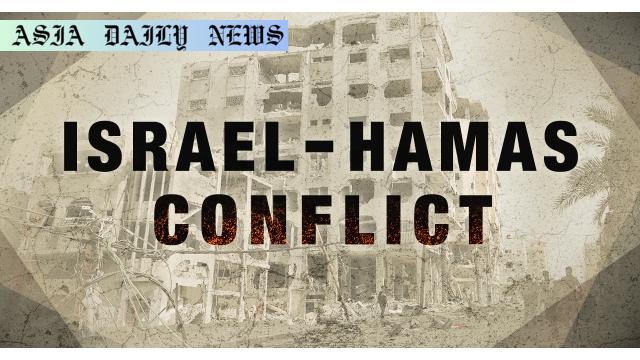Hamas refuses Israel’s 45-day ceasefire and hostages exchange, seeking full war halt and troop withdrawal from Gaza.

Hamas Rejects Israel’s Ceasefire Proposal
The ongoing crisis between Israel and Hamas took another turn as Hamas officially rejected an Israeli proposal for a 45-day ceasefire in exchange for the release of ten hostages. The proposal, reportedly advanced during ceasefire negotiations earlier this month, included conditions that Hamas found unacceptable, including demands for disarmament.
A senior Hamas official expressed in a video statement on Thursday that the group strongly opposes partial agreements, accusing the Israeli government, led by Prime Minister Benjamin Netanyahu, of using such proposals as a façade for their political objectives. The official emphasized that these objectives center on extending the conflict within the Gaza Strip rather than seeking a durable solution.
Hamas reiterated its stance on resistance, asserting that the right to bear arms is fundamental for the Palestinian people living under occupation. The group has instead proposed broader negotiations on a complete package deal, which would hinge on a full halt to the Israeli military offensive in Gaza and the withdrawal of troops from the region. In exchange, Hamas signaled their readiness to release hostages captured amid the ongoing conflict.
The Human Cost of Conflict
The conflict has already exacted a significant toll on the civilian population. According to the Palestinian Ministry of Health, 1,691 people have been killed in Gaza over the past month. This continues to highlight the humanitarian crisis exacerbated by ongoing military operations and political stalemates.
With Friday marking one month since Israel resumed offensive operations in Gaza, progress in ceasefire negotiations remains elusive. Despite the international community’s emphasis on reducing hostilities and pursuing a peaceful resolution, the demands made by each side seem to widen rather than bridge the gap.
The Road Ahead
The rejection of the ceasefire underscores the complexities of resolving the Israel-Palestine conflict. While disarmament and hostages remain critical elements of negotiation for Israel, Hamas insists on sovereignty and rightful resistance against occupation. This presents a diplomatic challenge that calls for deeper interventions by mediators who can bridge these competing priorities.
Observers have noted that the continuation of Israel’s offensive and the resulting casualties will likely contribute to mounting international pressure on both parties to reach a compromise. Nevertheless, without mutual concessions, the path to a sustainable peace agreement remains uncertain.
Commentary
The Struggles for a Lasting Peace
The rejection by Hamas of Israel’s 45-day ceasefire proposal is another stark reminder of the deep-rooted complexities of the Israel-Palestine conflict. It reflects not just the immediate deadlock between the two parties but also the long history of mistrust, divergent priorities, and competing interests. For Hamas, the resistance is not merely a political stance but a symbol of their ongoing struggle against decades of what they perceive as occupation. On the other hand, Israel’s insistence on conditions like disarmament reflects their broader concerns over security and stability.
A Humanitarian Crisis Amid Political Stalemates
Beyond the political jousting, the human cost of this conflict cannot be ignored. Thousands of lives have been lost, families displaced, and infrastructure shattered. The most vulnerable – children, women, and the elderly – bear the brunt of this ongoing violence. The figure of 1,691 lives lost in just one month is a sobering reminder of what is at stake. Immediate agreements on corridors for humanitarian assistance and protections for civilians remain imperative, irrespective of political differences.
The Role of International Mediation
The international community has a critical role to play in bridging divides and offering pragmatic solutions. Effective mediation requires understanding the perspectives of both parties while underscoring the importance of a peaceful resolution. Proposals that prioritize trust-building measures, such as phased troop withdrawals and monitored sieges, could serve as a way forward.
However, achieving consensus in ceasefire negotiations remains a herculean task. It requires genuine willingness from both Israel and Hamas to consider the broader implications of renewed conflict for their people and the region at large. Recognizing the equal rights of populations on each side may form the foundation of a sustainable solution.


